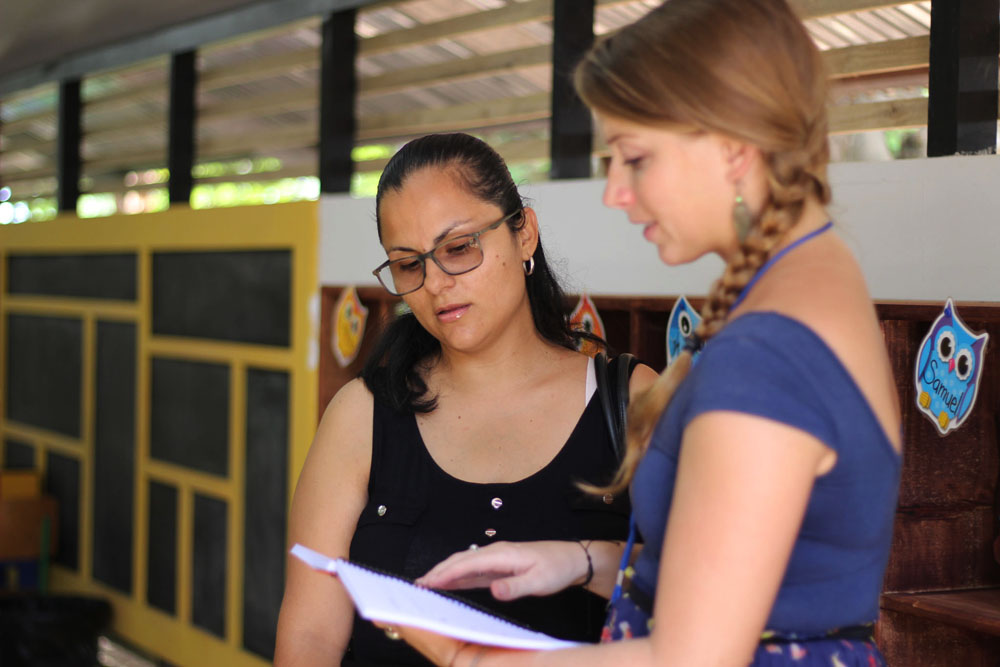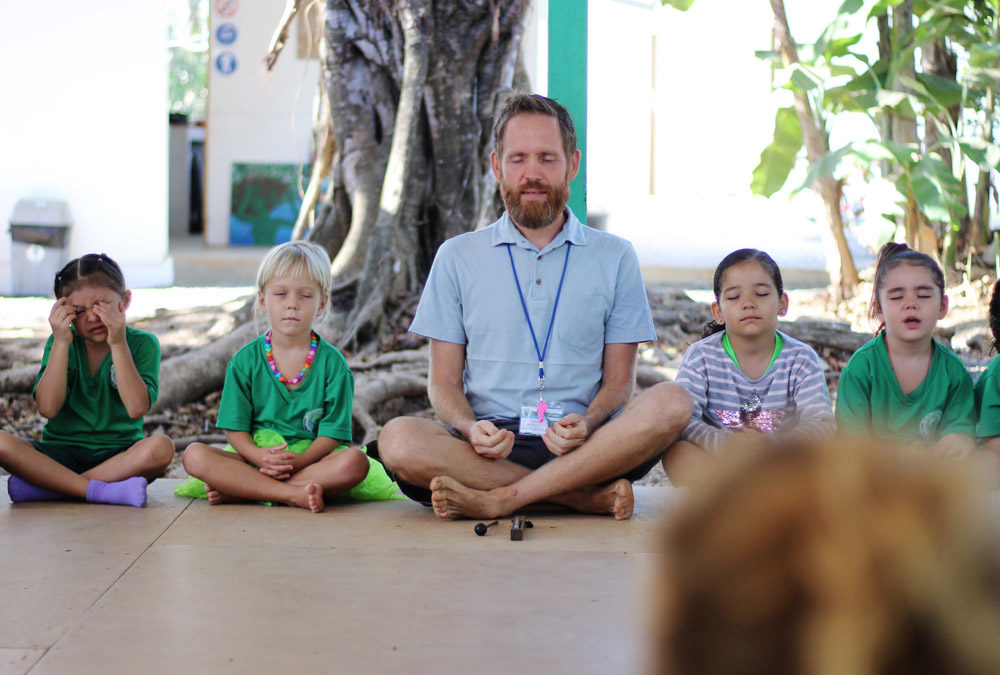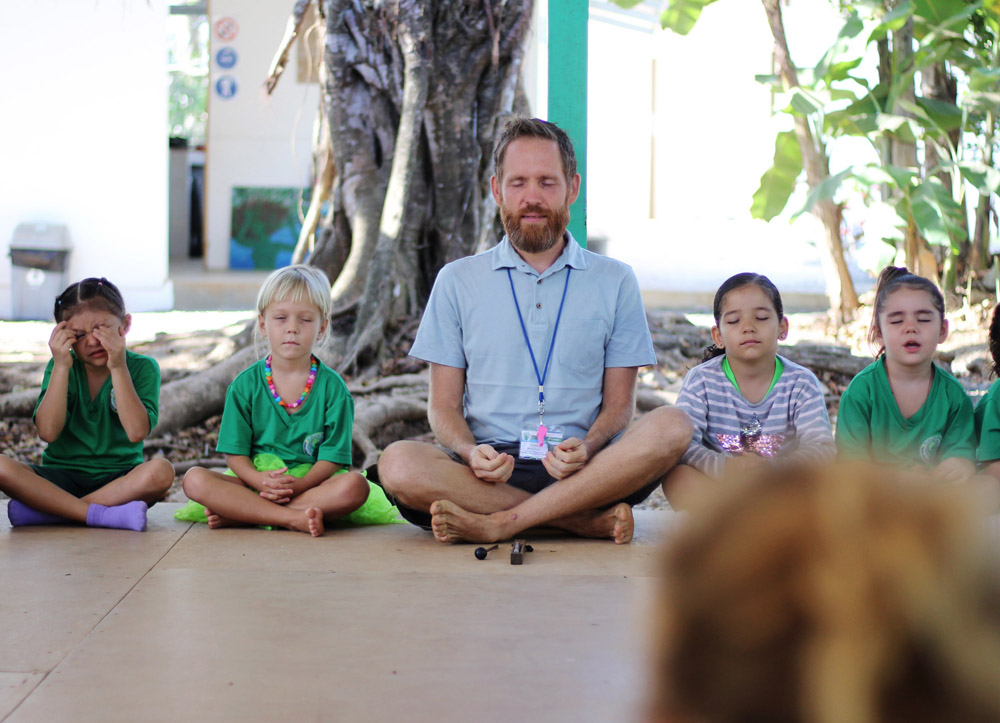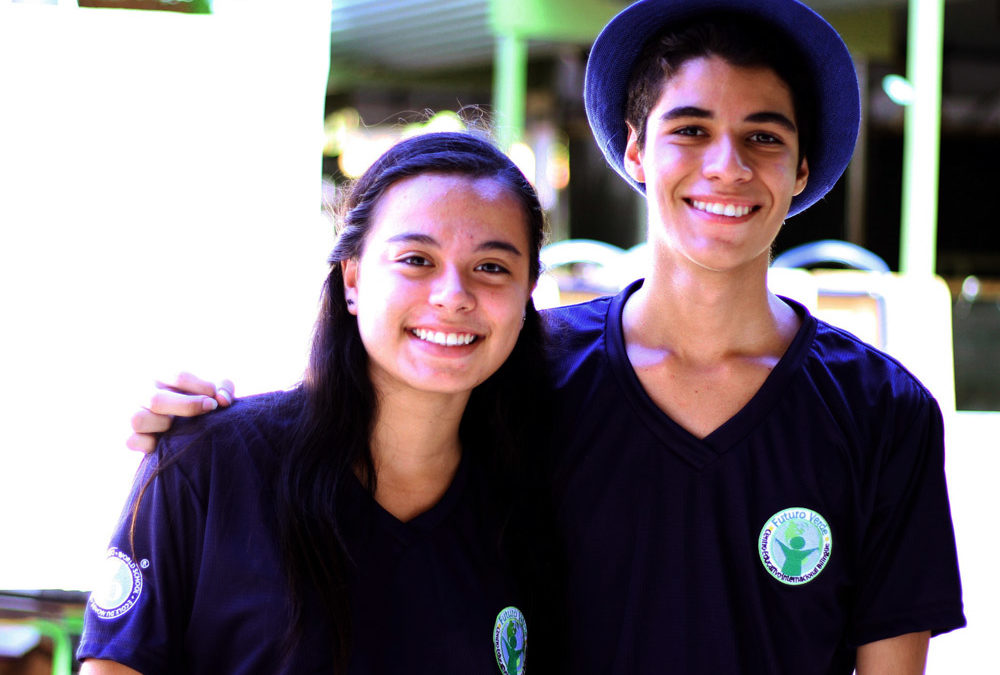
by David Brookshire, MPH/ School Counselor & Special Education Case Manager | Apr 17, 2018

As we come to the close of the first trimester and parent teacher conferences are approaching, I’m reminded of my first parent conference as a parent. Quite honestly, I remember being a little taken aback by some of the numbers. How could someone not see my child as the glowing beacon of academic prowess that I saw him as? Sure, there were several subjects with high grades but what about the 2 or 3 that were lower than the rest? Certainly, there must be a mistake, a misunderstanding, or….could this be a direct attack?!? I joke, but I think this is probably a common experience for us as parents. Even though most of our students function quite well academically, everyone has their own strengths and challenges. When challenges arise, I think it often comes down to how we interpret feedback, how we conceptualize growth and success, and how we communicate that to our children.
This presents several opportunities, doesn’t it? It ‘s an opportunity to discuss personal strengths and challenges. It’s an opportunity to realize that we all function differently in different environments and therefore relate differently to different people. And, it ‘s an opportunity to incorporate a growth mindset as we examine our perspective about what it means to succeed or fail. All of these opportunities, when seized and used to frame discussions with our children, help us all to be well-rounded learners that adapt to various environments and thrive.
It’s quite reasonable to expect that each individual has their strengths and their challenges. As a result, it would be surprising if everyone was automatically perfect and exemplary at everything they attempted. In my experience, it can be helpful to focus on a child’s strengths in order to help them tackle something that might be more difficult. It’s common to face difficulty or challenge throughout life and learning tools and strategies to solve difficult problems can really help kids build confidence and increase their level of independence. For example, if one of my child’s strengths is creativity, I can use that as a guide for how to help him use creativity to solve problems or ask for help. If someone is naturally curious, we can help them harness their curiosity in more challenging situations to explore possible solutions. If a student is naturally persistent in some settings, we can help them use their strength to persist in other settings. Helping kids identify their strengths can be a really run and rewarding conversation for both us as parents, and the child as they learn about themselves and develop self-awareness.
As for a growth mindset, when we emphasize the importance of practice as the key to acquiring skills, it makes it easy to recognize that when lower scores in a certain subject occur, it simply signifies the need for more practice and maybe some extra help. It’s an opportunity to seek and incorporate feedback from a teacher and learn new ways to achieve our goals. Setbacks or challenges in learning provide an opportunity to see things in a different way and achieve deeper levels of understanding. With an emphasis on participation and effort, it’s relatively easy, at Futuro Verde, to get the help needed from teachers when there is a situation requiring more attention. Generally speaking, most students function within the range of optimal learning. And, with the notion that “it takes a village to raise a child,” we all work together for the healthy growth and development of the child.

by Noelia | Mar 26, 2018

During the month of April, we are exploring what it means to be knowledgeable. According to the IB Learner Profile, we define knowledgeable as:
“We explore concepts, ideas and issues that have local and global significance. In so doing, we acquire in-depth knowledge and develop understanding across a broad and balanced range of disciplines (IB 2017).”
Having discussed the other values in previous months, we know that prior exploring the concept of being knowledgeable, we learn about what it means to be a good inquirer. Prior to practicing inquiry, we discuss as a school community what it means to be a healthy risk taker. When examined in sequence, we realize the way each concept relates to one another. By approaching new situations with courage and forethought, we take healthy risks that push us outside of our comfort zone, allowing us to learn and grow. This process facilitates inquiry as we develop natural curiosity and skills while enjoying the learning process. By practicing taking health risks and building the skill and curiosity of inquiry, we naturally become more knowledgeable.
At Futuro Verde in addition to academic knowledge, students also gain knowledge through experiential learning social-emotional learning. Whether practicing mindfulness or learning about different values, students gain insight into building character. This gives them a well-rounded perspective as they learn to relate to themselves and others around them. Each week at Peace Practices, these values are reinforced with activities as we come together as a school community. This is a fun and interesting way to integrate knowledge with experience as they build their own understanding of who they are in the world. A great way to reinforce this at home as to ask students what value they are learning about this month. If they can tell you about the weekly activities and how it relates to the value of the month, it shows that they are really integrating the concepts and becoming more knowledgeable about themselves and the values we practice as a school.

by Stuart Millar, IB coordinator | Mar 15, 2018

Futuro Verde graduates of 2017, Derlin Dilana Campos and Elian Gonzalez, returned this year to join our first International Baccalaureate Diploma Programme class. We asked them to reflect on their experience so far.
2018 is Futuro Verde´s first year as an IB World School. The IB Diploma Programme provides ample opportunities that open many doors to a higher education, besides being intellectually stimulating.
Last year, at the end of the 2017 school year, we were offered the opportunity to be part of this program and continue studying at Futuro Verde for an additional two years while receiving a better, more holistic education that will prepare us to face global challenges.
IB classes are notably different from MEP classes. We can notice a change in how and what we are learning. Classes are more interactive and we participate more in discussions. The main focus is on acquiring useful information that helps us analyze our surroundings and develop critical thinking.
I would say that time management has proven to be our biggest challenge because IB means more homework and projects, which can be difficult to complete if you are not good at organizing your time.
Despite the extra work, we feel excited about being back at Futuro Verde and receiving classes in the new and updated music and arts classrooms. Analyzing visual arts pieces or composing music means the world to us and inspires us to follow our dreams.






